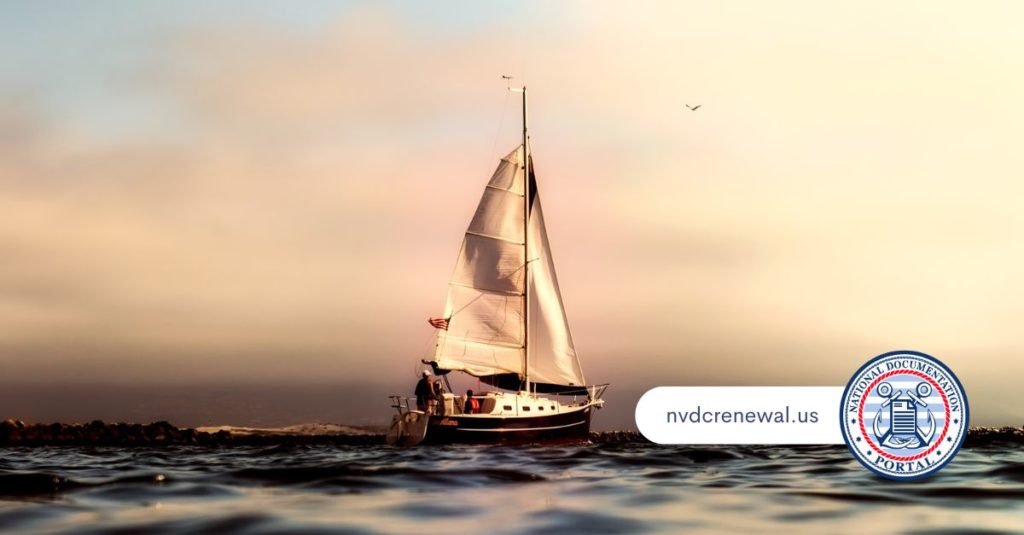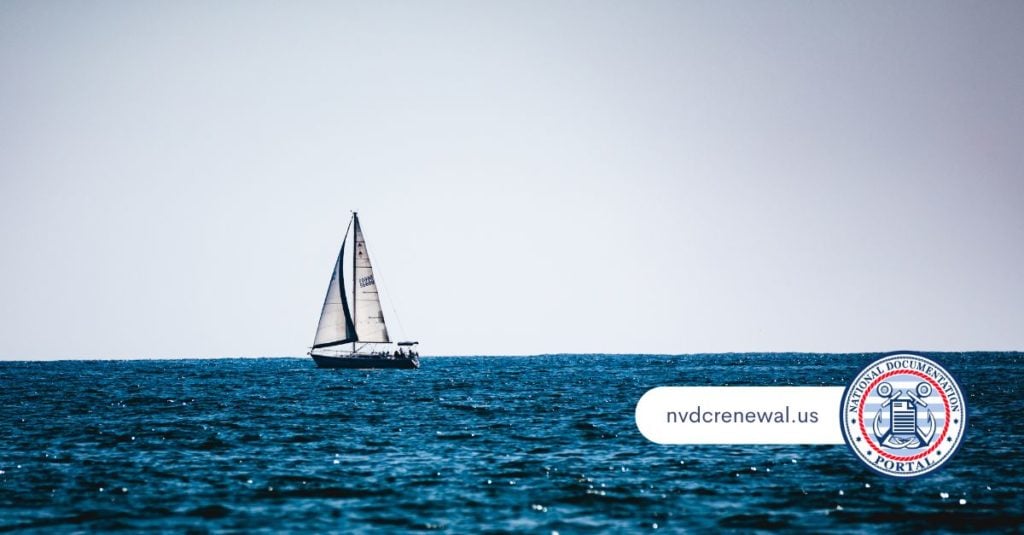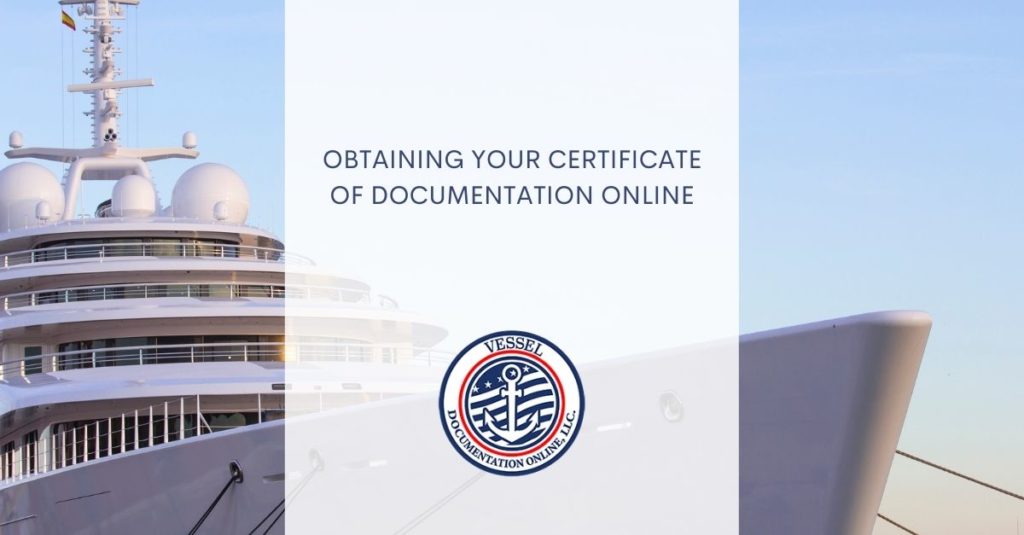For many vessel owners, navigating the requirements of maritime law can seem complex. One of the most important credentials you may need is a Certificate of Documentation. This federal registration, issued by the U.S. Coast Guard, provides conclusive evidence of nationality for international purposes, allows for unhindered commerce between states, and admits vessels to certain restricted trades, such as fisheries. Understanding the process, from eligibility to application, is crucial for ensuring your vessel operates in full compliance with federal regulations.

Our platform is designed to simplify this entire process. We provide user-friendly online forms that guide you through each step of the application, removing the guesswork and potential for errors that can lead to delays. Whether you’re a new owner or have been on the water for years, our goal is to make acquiring and maintaining your vessel’s documentation straightforward and efficient. We translate complex government requirements into a clear, manageable process, allowing you to focus more on enjoying your time on the water.
What to Know About the Certificate of Documentation
A Certificate of Documentation is a national form of registration for a vessel. It is different from state-level registration or titling. While state registration is often required for most recreational boats, federal documentation is mandatory for vessels engaged in specific commercial activities and is an option for many recreational vessels over a certain size. Holding this certificate means your vessel is officially registered with the U.S. federal government, which carries several benefits and responsibilities.
The primary purpose of documentation is to establish a vessel’s nationality, which is essential for international travel. A documented vessel is recognized as a vessel of the United States, which can simplify customs and entry procedures in foreign ports. Additionally, it is required for vessels used in commercial trades between U.S. states or in certain fisheries. For owners who finance their purchase, most marine lenders require the vessel to be documented to secure their interest with a Preferred Ship’s Mortgage, which is recorded with the Coast Guard.
Who Needs a Certificate of Documentation?
Federal law mandates that certain vessels must be documented. This primarily applies to commercial vessels of at least five net tons. This includes vessels engaged in coastwise trade (transporting goods or passengers between U.S. ports) and certain fishing activities in U.S. navigable waters or the Exclusive Economic Zone (EEZ). If your vessel falls into one of these categories, documentation is not optional; it is a legal requirement for operation.

Our service helps commercial operators determine if their vessel meets the five-net-ton threshold and requires documentation. We provide the necessary forms to apply for an Initial Certificate of Documentation with the appropriate trade endorsements, such as coastwise or fishery. For instance, a small business owner starting a charter fishing operation must document their vessel to legally operate. Our platform streamlines this, helping them gather the required information and submit the application correctly the first time.
Who Can Choose to Get One?
For recreational vessel owners, documentation is often a choice. If your vessel measures at least five net tons, you have the option to document it with the Coast Guard instead of, or in some cases in addition to, registering it with your state. Many owners of larger recreational boats, such as yachts and cruisers, prefer federal documentation. It provides a clear and nationally recognized chain of title and can make selling the vessel or traveling to foreign waters much simpler.
We assist recreational owners in understanding the benefits of voluntary documentation. A common scenario involves an individual who purchases a large sailboat with plans for international cruising. State registration may not be widely recognized abroad, but a Certificate of Documentation is. Through our portal, that owner can easily apply for documentation with a recreational endorsement. Our simplified forms ensure all necessary details, from ownership evidence to vessel specifications, are correctly submitted to meet the Coast Guard’s stringent requirements.
Eligibility Requirements for Documentation
Not every vessel or owner is eligible for a Certificate of Documentation. The U.S. Coast Guard has specific citizenship and vessel requirements that must be met. These regulations are in place to maintain the integrity of the U.S. flagged fleet and are outlined in federal law. Understanding these criteria is the first step in a successful application process.
The primary requirement for ownership is U.S. citizenship. For a vessel to be documented, all of its owners must be U.S. citizens. If the vessel is owned by an entity like a corporation or LLC, there are specific and often complex rules about the citizenship of its leadership and equity holders. The vessel itself must also measure at least five net tons, a measure of volume, not weight.
Citizenship Requirements for Individuals and Entities
As stipulated by regulations found in 46 CFR Part 67, an individual owner must be a U.S. citizen. For vessels owned by a partnership, all general partners must be U.S. citizens. When a corporation or LLC owns the vessel, the rules become more intricate. For a recreational endorsement, the entity must be registered in the U.S., and its CEO or president and the chairman of its board must be U.S. citizens. For commercial endorsements, the citizenship requirements for the entity are even stricter.
Our platform helps applicants navigate these complex ownership structures. For example, if a vessel is owned by a family trust, determining eligibility can be confusing. We provide clear, step-by-step forms that help the trustees provide the correct information to prove the entity meets the citizenship standards. This prevents common errors where applications are rejected because the ownership structure was not properly represented to meet federal guidelines.
Who is Not Eligible?
Individuals who are not U.S. citizens cannot document a vessel in their own name. This includes resident aliens holding a green card. If a vessel is co-owned by a U.S. citizen and a non-citizen, it is also ineligible for documentation. Similarly, corporations that do not meet the strict citizenship requirements for their leadership and control cannot document their vessels. Any vessel under five net tons is also ineligible for federal documentation and must be registered at the state level.
We help prevent ineligible applicants from wasting time and money on a futile application. Our forms are designed to pre-screen for basic eligibility. A common customer situation is a new boat owner who is a lawful permanent resident wanting to document their boat for international travel. By using our service, they would quickly understand that they do not meet the citizenship requirement for federal documentation, saving them from a rejected application and allowing them to pursue the correct state registration path instead.
The Importance of Acquiring Documentation the Right Way
Securing a Certificate of Documentation is more than just a administrative task; it is about establishing a clear, legal foundation for your vessel. An accurately completed application and properly maintained certificate ensure that your vessel’s title is unclouded and that you can operate without legal hindrances. Errors or omissions in the application can lead to significant delays or even denial, which could impact your ability to use your vessel as intended, especially for commercial purposes or international voyages.
A correctly filed document provides a single, authoritative record of ownership. This is invaluable when selling the vessel or using it as collateral for a loan. A prospective buyer can perform a vessel documentation search to verify ownership and check for any recorded liens or mortgages, providing confidence in the transaction. This level of transparency is not always available with state-level titling systems, making federal documentation a superior form of titling for high-value assets.
Our Services Make it Simple
Our entire platform is built around simplifying the documentation process. From the initial application to renewals and transfers, we have created an intuitive online experience that removes the common obstacles vessel owners face when dealing with federal paperwork.
For an initial application, our forms guide you through providing all necessary information, such as proof of ownership (like a bill of sale or builder’s certificate), vessel dimensions, and owner citizenship details. The system helps ensure you fill out every required field correctly. If you need a documented vessel renewal, our process is even faster, allowing you to quickly submit your application to keep your certificate current without any lapse. We also facilitate other common needs, such as applying for a replacement certificate if yours is lost or damaged, or changing the vessel’s name or hailing port. Our secure portal is your one-stop solution for managing your vessel’s federal registration needs efficiently and accurately.

